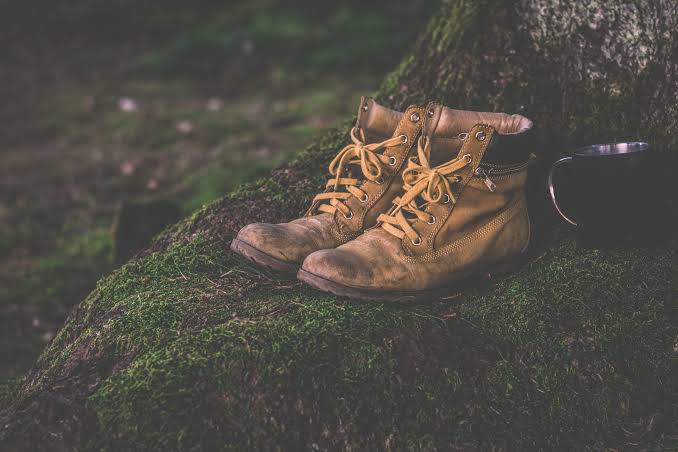Why My Knee Hurts After Hiking : Major Reasons And Solutions
One recurring issue that often shadows our expeditions is the all-too-familiar complaint: “My knees hurt after hiking.”
Over the years, I have had countless companions who embarked on hiking journeys with me, their enthusiasm and motivation soaring high, only to be dampened by the throbbing discomfort in their knees.

It is a shared concern among hikers, both novices and seasoned adventurers alike, and it is vital to address this common issue to ensure that the wonders of hiking remain accessible and enjoyable for everyone.
The basic reasons why your knees hurt are maybe you are a beginner and often beginner’s knees hurt after one or two hikes and if you keep hiking they also recover. Other reasons involve wearing of wrong shoes, too many steep trails, age factor, and lack of knee support.
So in this blog, I aim to unravel the mystery behind why our knees experience discomfort after hiking and shed light on effective strategies to mitigate or prevent this discomfort.
8 Emotional Benefits of Hiking That Will Make You Speechless
Why My Knee Hurts After Hiking?
When I began my hiking journey as a beginner, the excitement of exploring new trails and immersing myself in nature was overwhelming. However, along with the thrill came an unexpected hurdle – the discomfort in my knees.
At first, I thought it was just the result of pushing my body beyond its usual limits, and I dismissed it as a temporary consequence of stepping into the world of hiking. Little did I know that this initial knee soreness had a more profound reason behind it.
As a novice hiker, my muscles were not accustomed to the rigorous demands of traversing rugged terrains and conquering steep inclines. The repetitive motion and strain put on my knee joints led to soreness and discomfort, as my soft muscles tried to cope with the unfamiliar stress.
It was as if they were breaking down to build themselves anew, attempting to adapt to this new endeavor I had embarked upon. And after several days they also got recovered but like me, you should not lose your hope and motivation to conquer the trails.
Knee Support
Even experienced hikers could face knee pain after long hikes. The cause could be multifaceted, ranging from overuse and poor form to inadequate knee support and insufficient conditioning.

So, investing in proper hiking knee support, such as wearing knee braces or using trekking poles, provided much-needed reinforcement for my knees during challenging hikes.
Understanding the importance of maintaining a steady pace, taking breaks, and listening to my body’s cues allowed me to prevent overexertion and minimize the impact on my knees.
Why Do I Feel Sick After Hiking : Symptoms, Causes and Prevention
Steep Trails
Hiking on uneven or steep terrain is a thrilling and rewarding experience, immersing us in the rugged beauty of nature and pushing our physical boundaries. However, along with the sense of adventure, navigating through such challenging landscapes can also take a toll on our knees, leaving us with soreness and discomfort.

I have encountered my fair share of uneven and steep terrains, and I can attest to the fact that these elements can significantly impact our knee health. When we tackle uphill climbs, our knees endure increased pressure as they support our body weight against gravity.
Similarly, when descending steep slopes, our knees act as shock absorbers, cushioning the impact and ensuring stability. Over time, the repetitive strain from negotiating such uneven paths can lead to hiking knee pain and soreness, affecting both our immediate enjoyment and long-term hiking ambitions.
While embracing the allure of challenging terrains, it is crucial to approach these expeditions with a thoughtful mindset. Prioritizing proper hiking techniques and maintaining good posture greatly contribute to knee pain prevention for hikers.
Engaging our core muscles and avoiding hyperextension of our knees during descents are practices that safeguard our knees from unnecessary stress and strain.
Can You Hunt On The Appalachian Trail?
Shoes
One of the most crucial factors that hikers often overlook is the importance of proper footwear. When I first started hiking, I made the mistake of using regular sneakers, thinking they would suffice for short and easy trails.

However, I soon realized that these shoes lacked the necessary support and cushioning required to navigate challenging terrains. As a result, my knees suffered from constant strain and discomfort, making each step an arduous task.
Proper hiking shoes or boots are designed to provide the right balance of support, stability, and cushioning, which is essential for maintaining the natural alignment of your feet, ankles, and knees.
High-quality hiking shoes come with sturdy soles and adequate arch support, which help absorb the impact of each step and distribute the pressure evenly across your feet and knees.
Once you have found the perfect pair of hiking shoes, don’t forget to break them in before embarking on a long hike. Wearing new shoes without breaking them in can lead to unnecessary discomfort and knee pain. Gradually wear them for short walks or hikes to let your feet adapt to the footwear’s structure and avoid any potential issues on the trail.
Pre-existing conditions
If you have pre-existing knee issues, hiking can exacerbate the pain. Pre-existing knee issues encompass a wide range of conditions, from previous injuries to chronic ailments such as osteoarthritis.
Regardless of the nature of the condition, the repetitive stress and strain imposed on the knees during hiking can aggravate the pain and lead to further complications if not managed properly.

It is crucial to recognize that each individual’s knees are unique, and what might be an invigorating hike for one person could pose significant challenges for another with pre-existing knee problems.
Before lacing up our hiking boots and setting off on a trail, it is essential to consult with a healthcare professional who can provide personalized advice based on our specific knee conditions. They offer insights into the limitations and potential risks associated with hiking and recommend suitable precautions and modifications to ensure a safer and more enjoyable experience.
For those of us with pre-existing knee issues, selecting appropriate trails can make a world of difference. Opting for less challenging terrains with gentle inclines and declines can help minimize the impact on our knees while still allowing us to revel in the natural beauty surrounding us.
They can also use hiking poles because they provide extra stability and support, reducing the pressure on our knees and aiding in maintaining balance.
Major Negative Effects of Hiking On The Environment
Age
For those of us who have embraced the call of the wild and the allure of hiking, it is essential to understand how aging affects our knees and what measures we can take to safeguard these vital joints.
The wear and tear on our knees occur due to a variety of reasons, including the gradual loss of cartilage, reduced flexibility, and decreased muscle strength. These age-related changes can make hiking more challenging and increase the risk of experiencing knee pain or discomfort.

However, before we get disheartened, it is essential to recognize that age is just a number, and with proper care and preparation, we can continue to savor the joys of hiking well into our golden years.
One of the key factors in maintaining knee health is regular exercise and staying active.
Engaging in low-impact exercises, such as walking, swimming, or cycling, can help strengthen the muscles around the knee joint and improve joint stability. These activities not only aid in reducing knee pain but also enhance overall fitness, making our hiking adventures more enjoyable.
Moreover, it is crucial to adopt a mindful approach to hiking. Choosing trails that suit our fitness level and avoiding steep or uneven terrain can significantly reduce the strain on our knees. Investing in high-quality hiking shoes that provide proper arch support and cushioning can also make a world of difference in minimizing knee discomfort during hikes.
Common mistakes
Among the various factors that contribute to knee pain after hiking, incorrect technique stands out as a primary culprit.
Poor hiking form not only robs us of the joy and freedom that hiking provides but also leads to significant strain on our knees, causing discomfort and even injuries.
And I also attest to the significant impact that hiking form has on the health of our knees.
One of the most common mistakes hikers make is overstriding. Taking excessively long steps might seem like a way to cover more ground quickly, but it puts immense pressure on our knee joints.
This overextension leads to increased stress on the ligaments and tendons surrounding the knees, making them more susceptible to pain and injuries.
Downhill hiking can be treacherous territory for our knees, especially when done incorrectly. Descending steep trails with locked knees or without proper control can subject our knees to unnecessary impact and strain. The constant jarring impact on our knee joints can lead to inflammation and soreness, causing discomfort long after the hike is over.
Moreover, not paying attention to the terrain and choosing inappropriate footwear can exacerbate knee problems. I have already mentioned to this but this is a common mistake.
Uneven surfaces, loose rocks, and rugged trails demand careful foot placement and sturdy hiking shoes with proper ankle and arch support. Neglecting these aspects can lead to missteps and injuries that directly impact our knees.
What To Bring On A Hike Date : Here Is The Perfect Solution


